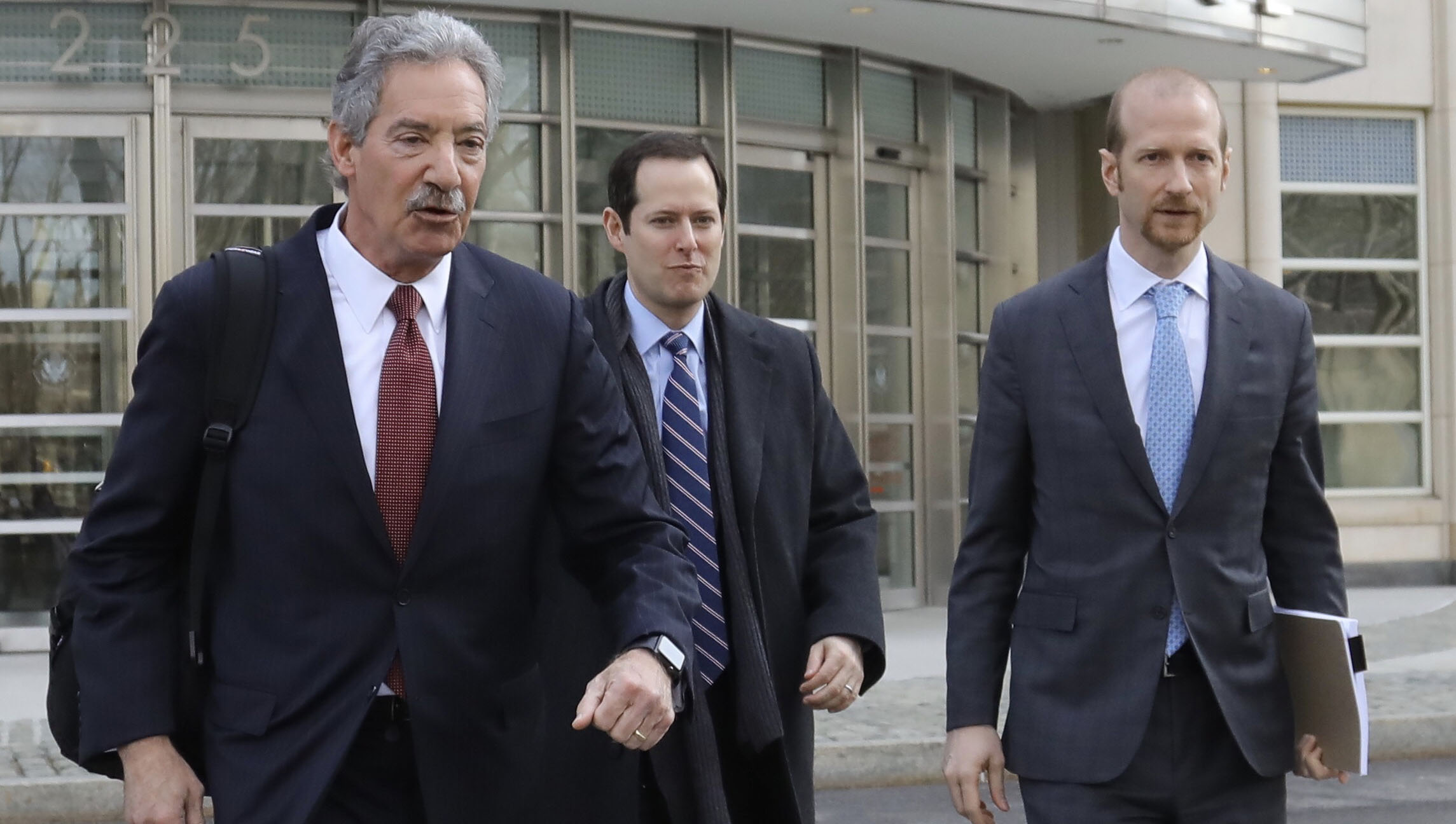The Justice Department is working to disqualify top Obama department official James Cole from defending the Chinese technology firm Huawei in a high-profile criminal case, according to a new heavily redacted federal court filing on Friday.
The Justice Department unsealed an indictment against Huawei in January 2019 which charged the company with bank fraud, conspiracy to defraud the U.S., conspiracy to commit money laundering, obstruction of justice, illegal actions related to dodging Iran sanctions, and more. Cole, who was deputy attorney general from 2011 to 2015, has been representing Huawei in this matter since 2017, but the Justice Department’s motion is an attempt to convince the court that Cole’s previous experiences investigating Huawei-related matters while at the department should disqualify him.
Cole held the second-highest position in the Obama Justice Department for five years, where he worked with Attorney General Eric Holder, oversaw the day-to-day operations of the department, and represented the department on the National Security Council. He brought those experiences to Sidley, one of the largest law firms in the country, where he is the global co-lead of their White Collar: Government Litigation and Investigations practice and where he has defended Huawei for the past couple years.
Justice Department attorneys told the U.S. District Court for the Eastern District of New York that “Cole should be disqualified from representing Huawei Tech and Huawei USA in this case because of two different conflicts.” The details the department provided on the first conflict were heavily redacted. The agency said that “having represented the government in his role as DAG in the DOJ’s [REDACTED] investigation [REDACTED], Cole should not now be allowed to represent the defendants in a [REDACTED] matter brought by the DOJ that is substantially related in multiple respects to that [REDACTED] investigation.” Therefore, the department said that “Cole should be disqualified because he was personally and substantially involved in a [REDACTED] investigation [REDACTED] that exposed him to relevant, privileged factual information [REDACTED] and strategic information about that investigation.”
The Justice Department did not specify those prior investigations.
The agency said the second conflict is that “Cole’s representation of the defendants jeopardizes the government’s interest in having a fair trial and obtaining a conviction that can sustain appeal and collateral attack.” Their claim was that, due to Cole’s past involvement in Justice Department investigations related to the Huawei case, he would not be able to provide Huawei with a proper defense and that “any representation by Cole would taint the trial process and any ultimate conviction.”
The Justice Department met with Cole related to his alleged conflict of interest multiple times in January and February 2019. Cole declined to recuse himself in March 2019, stating, “We have carefully considered the material you showed us and were unable to determine that I need to be disqualified based on that information.”
For its part, Huawei released a statement saying the Justice Department “has known since 2017 that Mr. Cole represented Huawei in this matter” and that its motion “makes a mockery of the adversarial process.” Huawei says that this is an attempt by the department “to strip Huawei of counsel of its choice … while concealing from Huawei and the public virtually all of the facts on which it bases its motion.”

The Justice Department has been increasing its scrutiny of China’s activities in recent years, launching a “China Initiative” in 2018 and charging an increased number of people in China-related espionage cases, cracking down on China-based hacking schemes, prosecuting Chinese efforts to steal trade secrets, and more. The department has turned its sights on Huawei’s alleged criminality: Aside from charging the company and its connected entities, the U.S. government is also seeking the extradition from Canada of Huawei’s Chief Financial Officer Wanzhou Meng, who the U.S. believes was involved in the criminal conspiracy.
The U.S. government widely suspects that the Chinese-based Huawei, a technology firm that is a global leader in telecommunications and in 5G, is working hand in hand with the Chinese government, giving China’s surveillance state access to hardware and networks around the world. Discussing the U.S.’s intelligence-sharing relationships with the United Kingdom and other European allies who are considering the use of Huawei’s 5G technology, Secretary of State Mike Pompeo recently warned, “We don’t believe you can have those technologies in your systems and still have a trusted network. We’re happy to continue to look at technology and see ways we might achieve that, but the United States for its part will only participate in trusted networks. We will only share America’s information with those networks that we are confident aren’t under the control of China or China’s government.”
The Department of Defense’s annual report to Congress on China, released in May, stressed that China is a growing threat not just in terms of hard power military capabilities but also in terms of cyberattacks, espionage, and infiltration. The Defense Department pointed out that China’s 2017 National Intelligence Law “requires Chinese companies, such as Huawei and ZTE, to support, provide assistance, and cooperate in China’s national intelligence work, wherever they operate.”
Cole is not the only former high-ranking Obama official representing China-based Huawei’s interests. Samir Jain, who was the senior director for cybersecurity policy for the National Security Council during the Obama administration, registered as a lobbyist for Huawei earlier this year.
